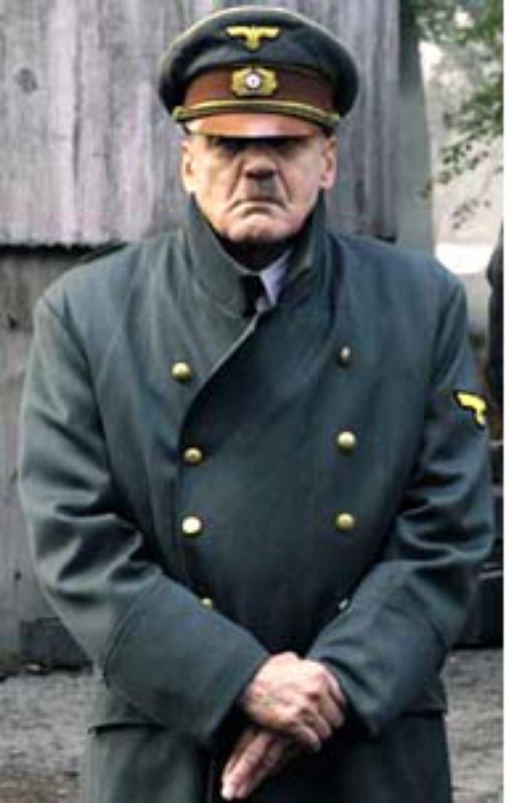Hitler's success
Published on
Translation by:
 dominic harrison
dominic harrison
Adolf Hitler is currently taking European cinemas by storm. But opinions over the film ‘Downfall’ (Der Untergang) are divided
 The film, which chronicles the Führer’s final days in a secret Berlin bunker, is fast becoming a European box-office hit and has already attracted over 4.2 million visitors to the screen in Germany, a further 370,000 in France and has entered the Danish film charts at number two. It seems the opportunity to once again experience Hitler close-up is a chance that neither the Germans, nor French and the Poles want to miss.
The film, which chronicles the Führer’s final days in a secret Berlin bunker, is fast becoming a European box-office hit and has already attracted over 4.2 million visitors to the screen in Germany, a further 370,000 in France and has entered the Danish film charts at number two. It seems the opportunity to once again experience Hitler close-up is a chance that neither the Germans, nor French and the Poles want to miss.
Nationalist reawakening?
For Bernd Eichinger, head of Constantin (the production company responsible for the film), this can only be regarded as good news and a justification for making the film. He is convinced of the educational content of his work. As the film opened in Germany, he explained that the ‘ever-important reappraisal’ of German history should not be left to Hollywood directors. However, most of the German media is not behind him. Eichinger’s film has been accused of historical misrepresentation and has come under widespread criticism for portraying the German population as victims to Hitler’s will, and no longer as complicit perpetrators of evil.
These accusations have been willingly supported and echoed throughout the rest of Europe. The left-leaning French newspaper Libération even devoted a double page spread to the issue. It wrote that Bruno Ganz, the actor playing Hitler, performed with as much vigour as a ‘toilet brush’ and implied the film was made because Germans had finally had enough of continuously being represented as perpetrators. Le Monde carried similar sentiments yet it centred its criticism on the film’s portrayal of Hitler’s personal secretary, Traudl Junge. The newspaper argues that by depicting her as a naïve and trusting employee, there exists an implicit suggestion that the German people were unwittingly and unknowingly led to their downfall.
A similar amount of scepticism and unease welcomed the film’s opening across the channel. Although the film isn’t due for general release in the UK until March 25th, the Times Berlin Correspondent, Robert Boyes, has criticised what he sees as the film’s failure to clearly distinguish the war’s victims from its criminals. Meanwhile, Ian Kershaw, the acclaimed biographer of Hitler’s life finds fault in ‘Der Untergang’ for doing little to better understand Hitler as a man. Criticism also came from Poland where Witold Kulesza, head of the ‘Institute of National Remembrance’ argued that the film would begin a new stage of ‘nationalist reawakening’ in Germany.
However, the film has also attracted positive feedback. Alfred Grosser, the German-French intellectual par excellence, said the film was “remarkable and extremely educational”. In contrast to Kershaw, fellow historian Simon Sebag Montefiore wrote in the English newspaper the Daily Mail that the film was successful in portraying a realistic picture of tyranny.
Nazi pop culture
It seems that public opinion is also equally divided. Twenty five year-old Tim from Luxemburg, who has been studying in Munich for five years, finds the commotion surrounding the film’s release difficult to understand. In Luxemburg the film was released alongside a documentary, which studied the country’s occupation under the Nazis. However, the film was received with relatively little criticism. ‘The film shows quite clearly that the Nazis’ downfall was well deserved. It brings home just how insane Hitler and his helpers actually were’ Tim says and adds, ‘it is so important to make films like this’.
Zuzanna, a student living in Poland, proffers a totally conflicting point of view. ‘This breaks a taboo in Poland’ she argues, mainly because the film portrays Hitler as a ‘tragic figure, and not as a criminal’. The ongoing resurgence of extreme right-wing groups in particular German federal states is a worrying sign for Zuzanna. ‘It seems that Hitler has become a part of pop culture. But his ideas are certainly still alive’.
Despite widespread criticism, Bernd Eichinger has every reason to rub his hands together with glee. ‘Der Untergang' has been nominated for an Oscar in the ‘Best foreign language film’ category and it has secured distribution in all of the countries that matter. What’s more, his production company could not have timed a more perfect release date, as 2005 coincides with the 60th anniversary of Hitler’s death and the end of the Second World War. So it seems that posthumously, Hitler is faring well on the continent he so manically craved.
Translated from Die Marke Hitler


